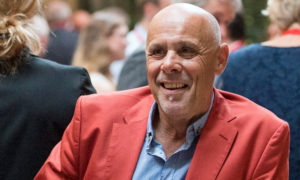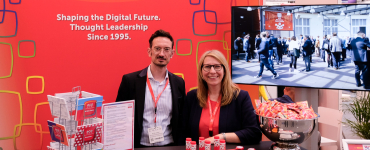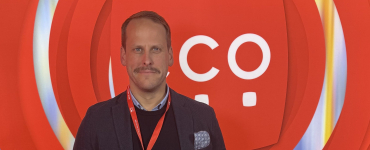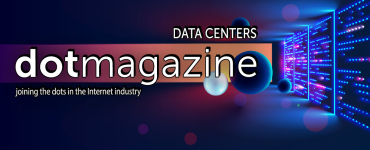by Harald A. Summa
In several respects, 2017 was an extremely dynamic year for eco. Significant change has occurred, both within the association itself and externally on the strength on our work, not to mention the change occurring in the international field. Here I would like to take the opportunity to take stock and to provide a subjective review of the year.
Right at the beginning of the year, upon Heise Medien joining us, we welcomed the thousandth member of our association. This marks not just a continuation of the steady growth of recent years, but also a considerable acceleration, meaning that we have further expanded our position as the largest association of the Internet industry.
This accelerated growth also applies to the DE-CIX Internet Exchange in Frankfurt, which set two data world records this year. Whereas a peak value of 5.88 Terabits per second was measured in September, the throughput data at the beginning of December peaked at over 6 Terabits per second. And there is still room for further expansion, as the technical infrastructure has a total capacity of 48 Terabits.
From Blockchain to SIWECOS
In considering the substance of our work in 2017, we can say that the new topic of blockchain assumed greater importance for eco, as did the Internet of Things (Internet of Things, or IoT for short). Together with Arthur D. Little, we presented three studies on IoT: on the Smart City, the Smart Home, and Industrial IoT. All three market segments promise to deliver considerable growth in the coming years and underline the importance of the Internet industry for the economy as a whole.
Thirty-six professional email marketing companies endorsed our “Manifesto for Serious Email Marketing“, thereby committing to high standards in the sending of bulk mail. Developed in cooperation with the CSA (Certified Senders Alliance), the international declaration includes legal foundations and technical quality standards for mass mailings involving several thousand recipients.
As a new project in the field of security, we presented the SIWECOS (Safe Websites and Content Management Systems) website scanner to the public at this year’s Internet Security Days. The offer helps small and medium-sized companies in particular to detect and fix vulnerabilities on their websites.
Law and Legislation
From an Internet policy perspective, 2017 was also an extremely eventful year. Much occurred both at national and EU levels.
In German politics, the year was dominated by the federal elections in September. For the first time, digitalization and Internet policy featured as electoral campaign issues. eco decisively drove and shaped the debate on the political challenges and needs of digital transformation in Germany through its campaign Wahl/Digital 2017.
As part of our event series “Internet Policy Party Check” we undertook an active exchange with all well-known Internet politicians from the CDU/CSU, SPD, Die Linke (The Left) and Bündnis 90/Die Grünen (The Greens) concerning current Internet policy issues and the plans of the parties for the coming legislative term. At our Network Policy Forum, Christian Lindner, Brigitte Zypries, and Peter Altmaier numbered amongst our high-ranking speakers and guests.
With our core Internet policy demands, as summarized in our Internet policy agenda, we will also be involved in the coalition negotiations and accompany as closely as possible the development of a digital policy program of the new federal government.
A regrettable topic that will continue to occupy us in the next legislative term is the controversial “Act for the Improvement of Law Enforcement in Social Networks” (NetzDG), which was passed shortly before the summer break and imposes far-reaching obligations on social network operators to combat illegal Internet content. In our view, the law contains far too short inspection periods and promotes a culture of deletion on the Internet.
The amendment of the German Telemedia Act (TMG) and the clarification within it of the Wi-Fi Third Party Liability also only reads well at first glance. As it transpires, a legal basis has actually been created for network blocking “on demand” from the rights holders, without a judicial decision being required.
In June, we achieved a milestone victory in the ongoing issue of blanket data retention: The Higher Administrative Court of North Rhine-Westphalia judged that blanket data retention was incompatible with European Union law, as a result of the Internet provider SpaceNet’s suit, supported by eco. We accordingly welcomed the subsequent decision of the Federal Network Agency to suspend the retention obligation and maximum retention period for traffic data.
Change at the top
There were also changes in eco’s personnel. As a whole, the team in both Cologne and in our Capital Office continued to grow. And then, in September, unexpectedly and with great sorrow, we were struck by the loss of Tom Müller, Head of Corporate Communications, who died suddenly and who has left a large gap behind him.
At the end of November, Oliver Süme was unanimously elected as the new Chairman of eco at the Annual General Meeting. He succeeds Professor Michael Rotert, who – in an exemplary and inimitable manner – represented the association as Chairman for 17 years and chose of his own volition not to run for a further term. In parallel, as part of a broader change to the Articles of Association, the management was extended and from the beginning of 2018, Alexander Rabe, current Head of the Capital office, will support me as a second CEO.
I very much looking forward to getting to grips with the tasks ahead with the new management team and would like to thank all eco colleagues for their – yet once again – exceptional work.
I wish you and your families a merry Christmas and a restful holiday season!




